This is a story about one block on Haskell Street in southwest Berkeley.
But before the story, which is something of a polemic, for those who wish, here is a digression about the naming of Haskell Street.
The 1300 block of Haskell street runs west to east starting one block east of San Pablo Avenue and Mabel and running to Acton Streets where it deadends. It is working class. It is diverse.
Berkeley cultural writer Greil Marcus has described of Berkeley’s magic, “attributable in part to the interplay between the town’s architectural and natural beauty, the University as a continual source of novelty, and the hundred-year-old antagonism between the working-class residents of the flatlands and the professional-class residents of the hills.” This is the working-class part of the equation. Rents and home prices were until recently, by Berkeley standards, affordable.
Although near San Pablo Avenue, it is a quiet, sleepy block with character and charm.
Gold velvet anigozanthos- yellow kangaroo paws! Not the expected red.
I don’t recognize the fruit on this vine. Help, anyone? UPDATE: Allison Franks has the answer: The mystery fruit is a chayote squash. The seed-end can be rooted like an avocado and will yield delicious crops on a nice vine (there in the motherland where it does not freeze).
A bungalow court? Not optimal, not bucolic – but – a bungalow court.
What a lot! Deep and double-wide – and in Berkeley.
The newly finished and freshly copyrighted Quirky Berkeley Quirk Algorithm would not predict a lot of quirk on this block, which is relatively low income and artists have not started moving in. It’s real people living real lives.
Despite the leading demographic indicators (LDI’s), there is some quirk on the block, most notably this:
This would be top-drawer quirk anywhere. Love it! More:
Along with the cement animals (which perhaps are just a little west of the 1300 block at 1214 Haskell), the block has several spirit-guide animals.
Free-range chickens! Jenny Marston was an early follower of Quirky Berkeley. She stubbornly denied that urban chicken coops are quirky. I disagree. That might seem to make it a 1-1 tie, but it isn’t. My vote is the only vote that counts. And besides she moved to Portland, Oregon, the home of the urban chicken coop.
The Gray Cat of Haskell Street! Name unknown. Wanted to be my friend. Briefly at least.
Near the west end of the block is a nondescript stucco house.
A Craftsman bungalow, it was built in 1925. Thanks to Google, we can see how it looked in happier times – 2008:
And in 2011:
It’s been downhill since then.
Funky garage!
The interior photos from its MLS listing in 2015 scream “fixer-upper,” but not tear-down. It is not a gem, I admit. This is not a story about a priceless specimen of remarkable Berkeley architecture and its race against the wrecking ball.
San Pablo Avenue is a transit corridor, an area where trips tend to cluster in a general linear pattern, with feeder routes linking to trunk lines that carry longer distance trips in a metropolitan area.
The City hopes to make San Pablo a SMART transit corridor “SMART” stands for Safety, Mobility and Automated Real-time Traffic Management. It uses a combination of hardware and communication technologies to make transportation systems operate more efficiently and safely. The idea is to divert traffic off Interstate 80 onto San Pablo Avenue when 80 is clogged up. Good idea!
San Pablo Avenue being a transit corridor means that San Pablo and its feeder streets are of greater interest to developers than they had been.
Which is the story of 1310 Haskell.
In a City that is deeply concerned with affordable housing, there is a proposal to demolish what had been sort-of-affordable housing. Exit one one-story stucco Craftsman bungalow, enter three two-story units of an uncertain architectural heritage.
 The neighbors did not go gentle.
The neighbors did not go gentle.
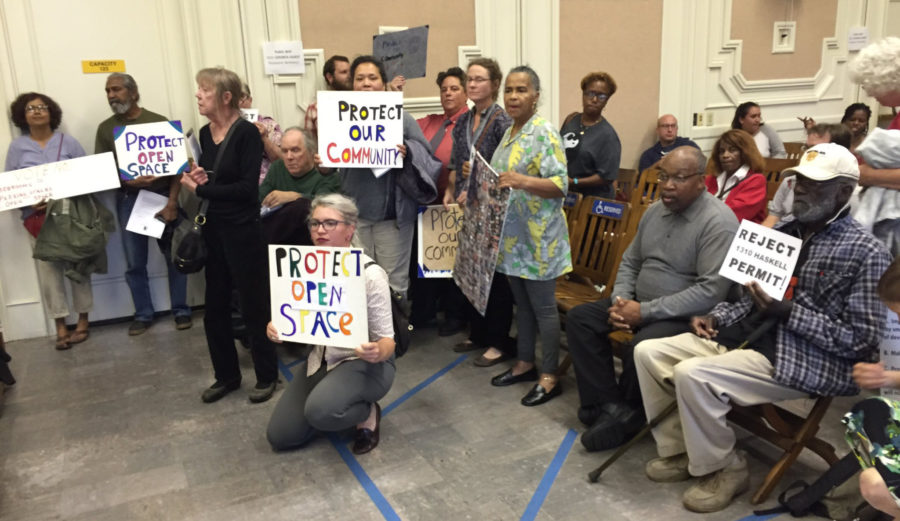
Some of the opponents of the Haskell Street 3-unit housing project at Berkeley City Council in July, 2016. Berkeleyside Photo: Emilie Raguso
They did not want the project. They were concerned about the height and density of the project. They were concerned about privacy as the buildings in the back of the lot overlooked the neighbor’s yard. They were concerned about parking.
Twice the City Council sided with the neighbors. Twice a pro-developer group sued to support the developer’s plan for 1310 Haskell. Twice the courts sided with the developer, relying on a state law.
The neighbors that I talked to were concerned about the economic impact of the development. They see the flames of gentrification lapping around their diverse, working class, more-or-less affordable block, the transformation of their block from low value to high value. They see rents and sale prices jacked up. They see the end of an era, the bell tolling for the racially diverse working-class residents of the flatlands. Yes, I know. Shit happens. Gentrification happens. But let’s not kid ourselves talking about the theoretical virtues of infill and affordable housing and transit corridors. That is not what is going down here.
On top of that, I see a serious eyesore – a blot, a blemish, a mess.
If you believe the vision articulated by Bay Street in Emeryville that Bay Street “serves as an eclectic urban village set in an industrial landscape, using architecture, lighting, landscape and environmental graphics to create a unique, contemporary atmosphere,” then you might perk up at the renderings for 1310 Haskell. If you don’t buy that vision of Bay Street, well, the Haskell renderings are just an anodyne horror, evoking CVS outlets or, in the words of Tom Wolfe, “a duplicating-machine replacement-parts wholesale distribution warehouse.” There is no architectural there there.
To be fair, here’s the other side. The architectural firm that designed the project stated in the application with the City that “we are a firm that actually care a lot about the aesthetic of the project.” They assured the neighbors that “we have a few similar projects that are very well received by its occupants and neighbors.”
At best – De gustibus non est disputandum, “In matters of taste, there can be no disputes.” I understand everyone’s personal preferences are merely subjective opinions that cannot be right or wrong, so they should never be argued about as if they were. That said – EYESORE!
It makes me long for the good old days of Warsaw Pact brutalism. The primary subplot of the 1975 Soviet movie The Irony of Fate is the bland, drab uniformity of Brezhnev-era housing and public architecture. The narrator of the film gives us a theory: “In the past when people found themselves in a strange city they felt lost and lonely. Everything around was different: streets and buildings, even life. But now it has changed. A person comes to another city and feels at home there.”
Brilliant! Open your eyes – Pleasanton. Open your eyes – Emeryville. Open your eyes – Irvine. All the same. Here? Hell no! To the barricades! Not in our dear old Berkeley!
Thus endeth the lesson. At least for now.
I asked my friend to look the draft post over. He did. He said, “You said it was a polemic. Is that a nice way of saying a rant or harangue?”
“Nope. It is a nice way of saying an aggressive attack on the opinions of another. Are you saying that the renderings here have redeeming architectural value? Are you saying that we lose nothing when gentrify and push out the working class? Are you saying that we are not a richer city with some balance and economic diversity?” He was done with this argument.
What about the post, polemic or not?
Hold on. Stop for minute. Hold the presses
On December 1, 2017, the New York Times published a great story on Haskell Street.
The article was called “The Great American Single-Family Home Problem.” It rocks, really rocks. Check it out.
On May 2, 2019, Berkeleyside reported that the first unit was completed and listed for $1.3 million. Another YIMBY victory for affordable housing!!!!!


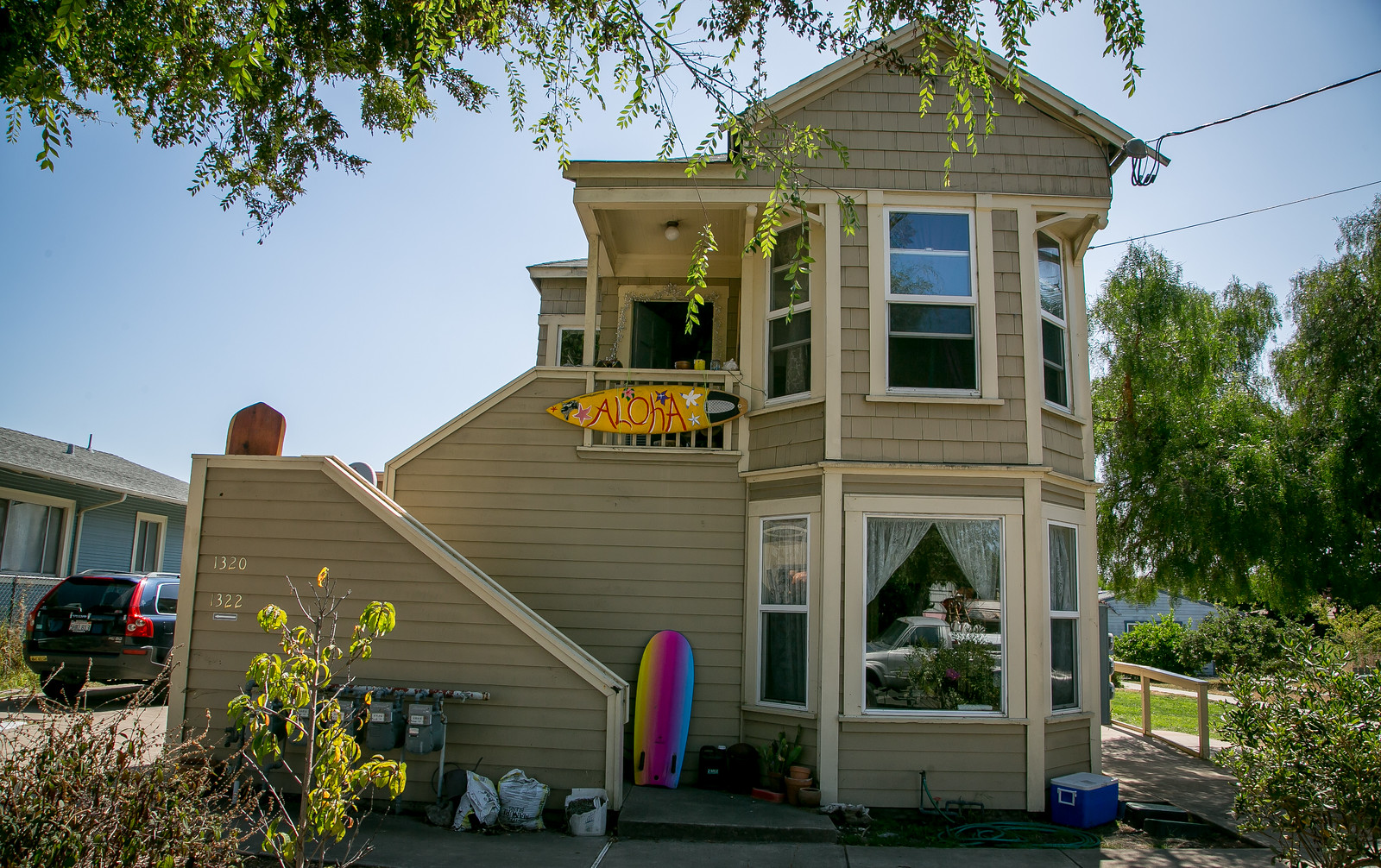
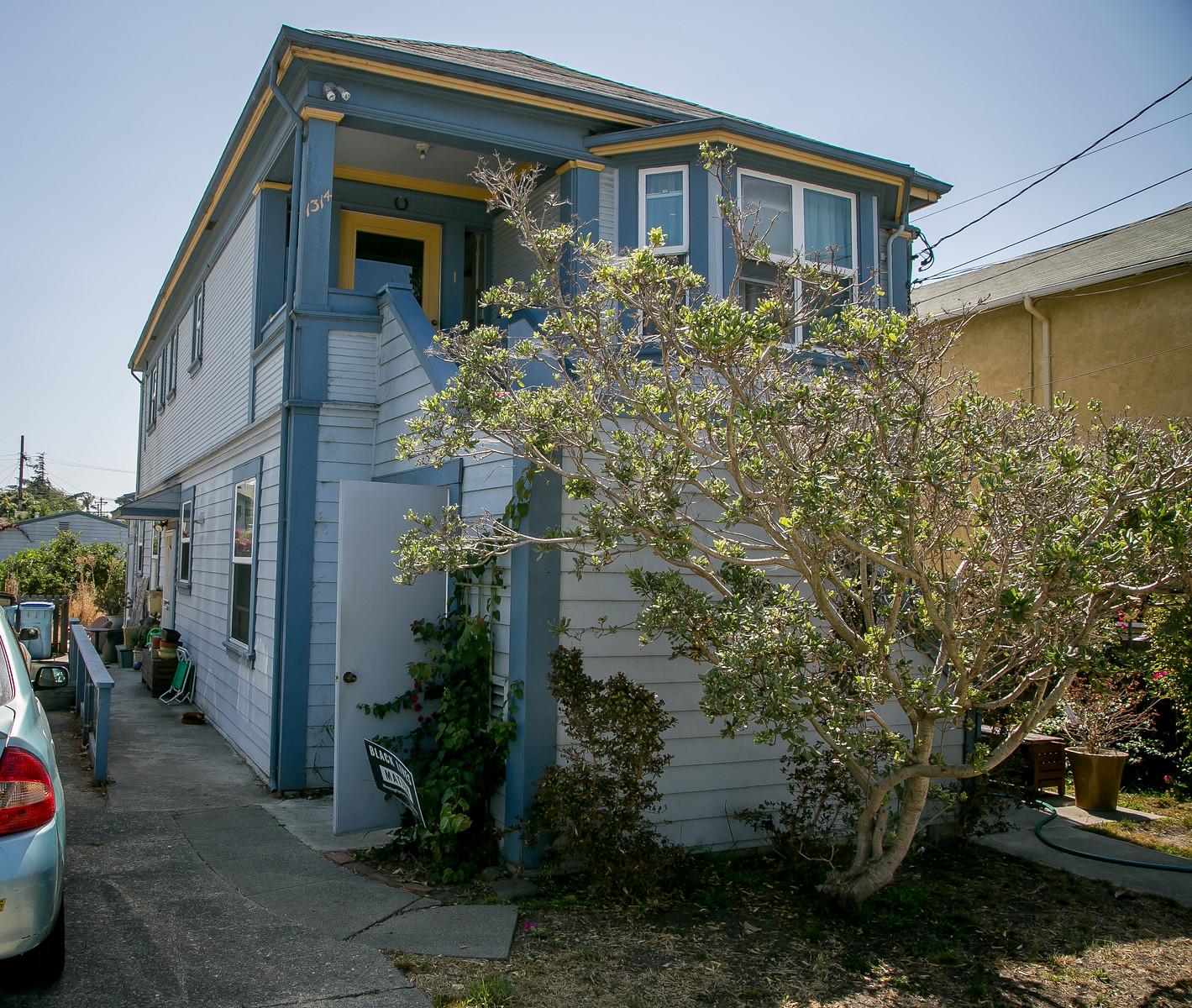
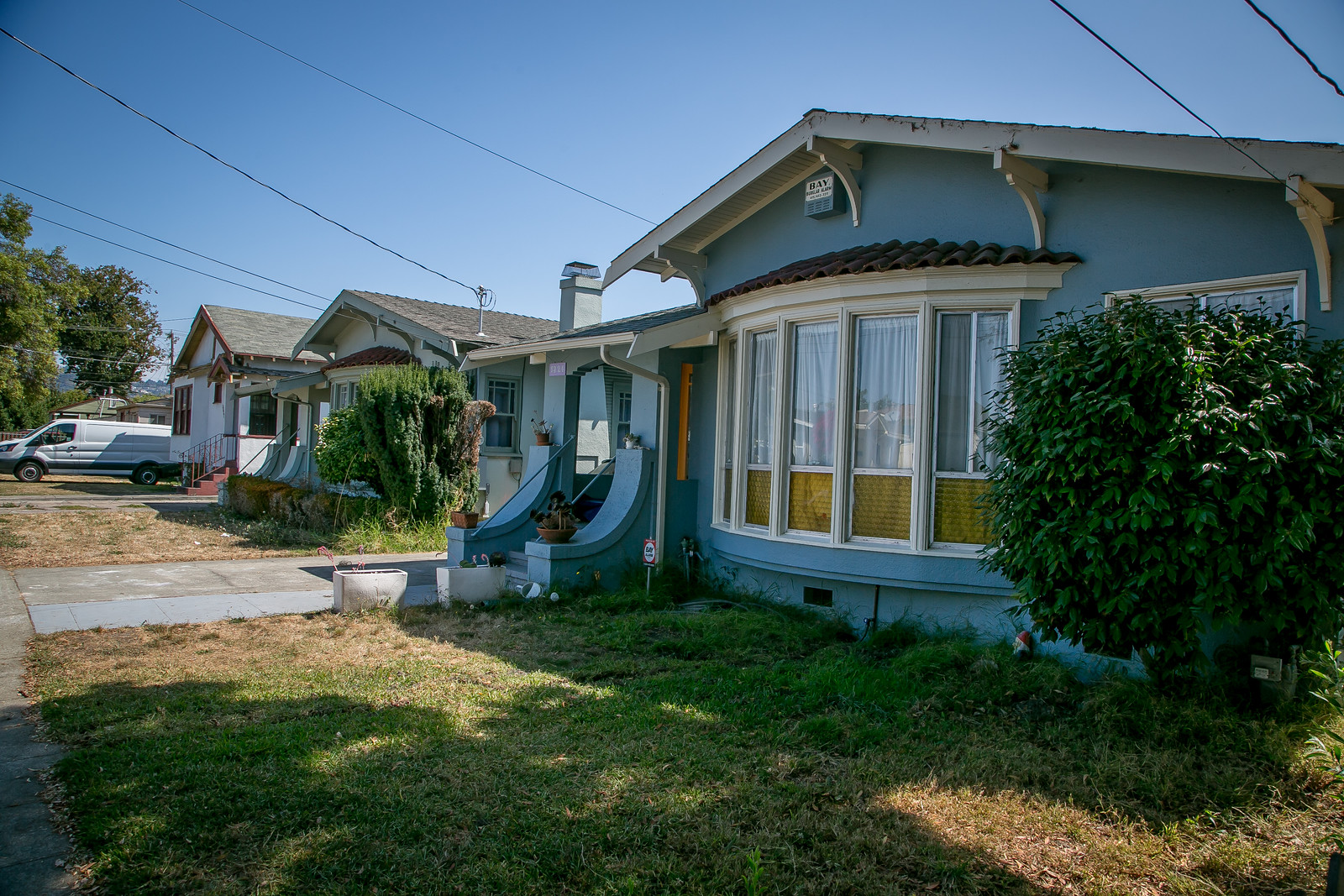
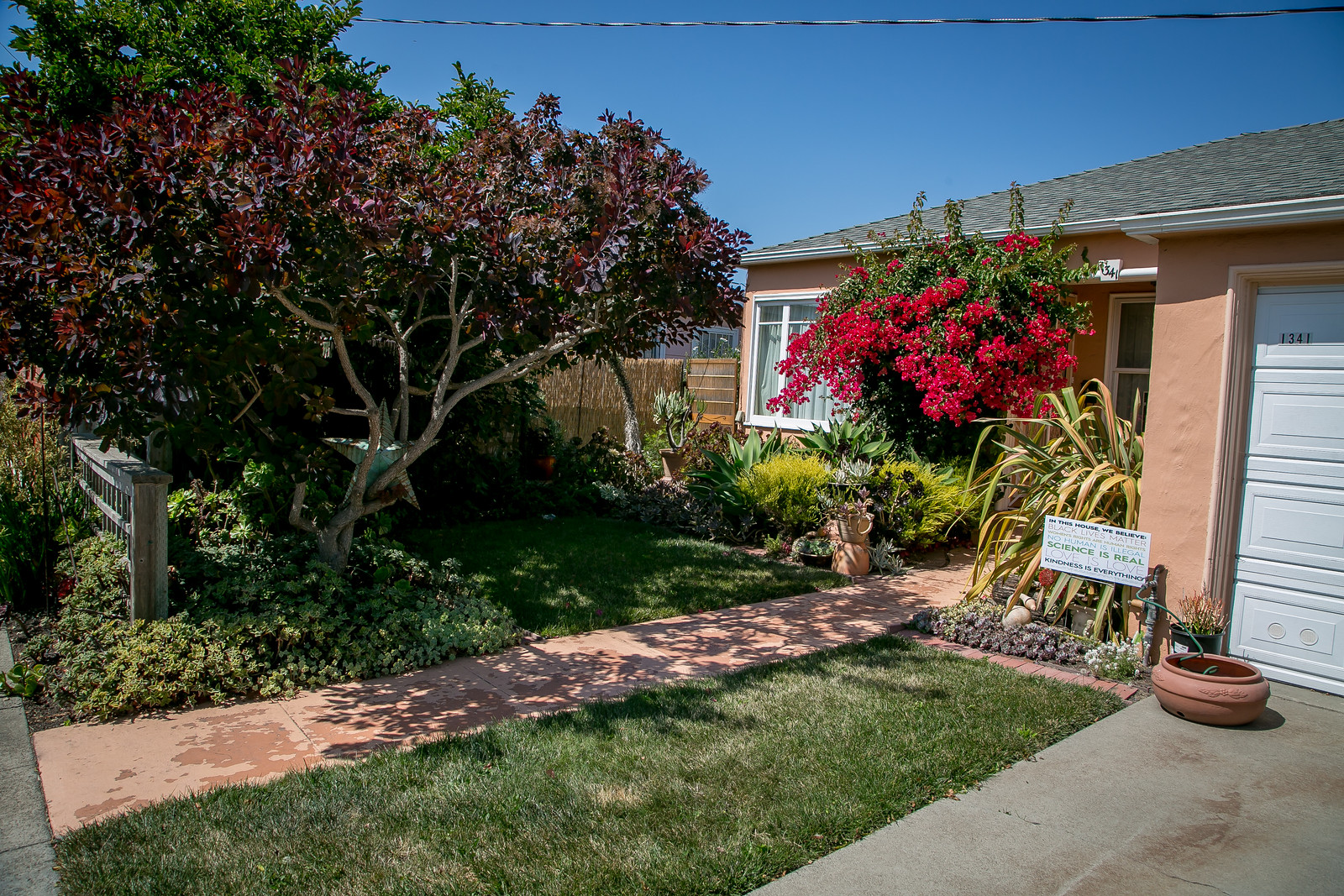
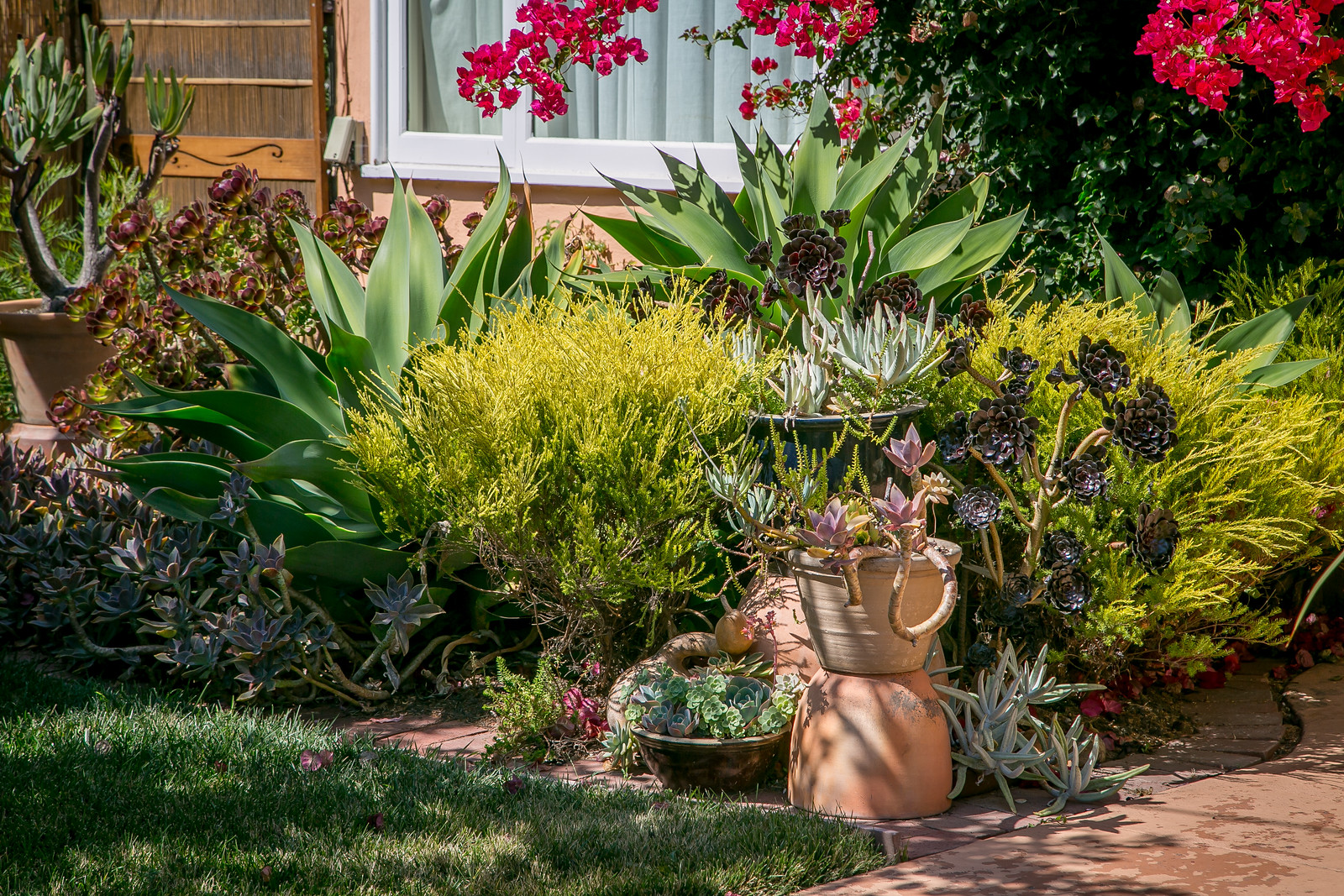
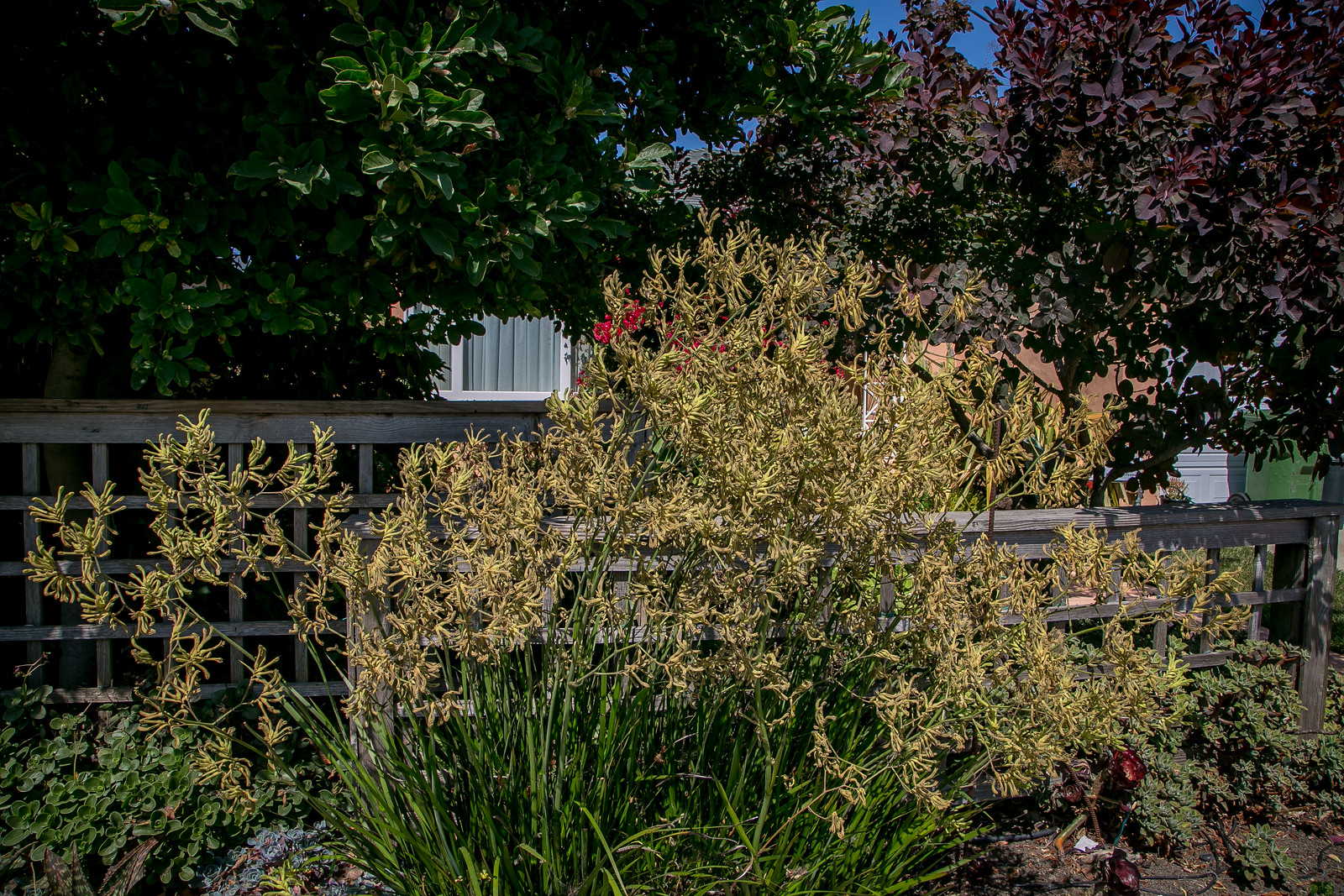
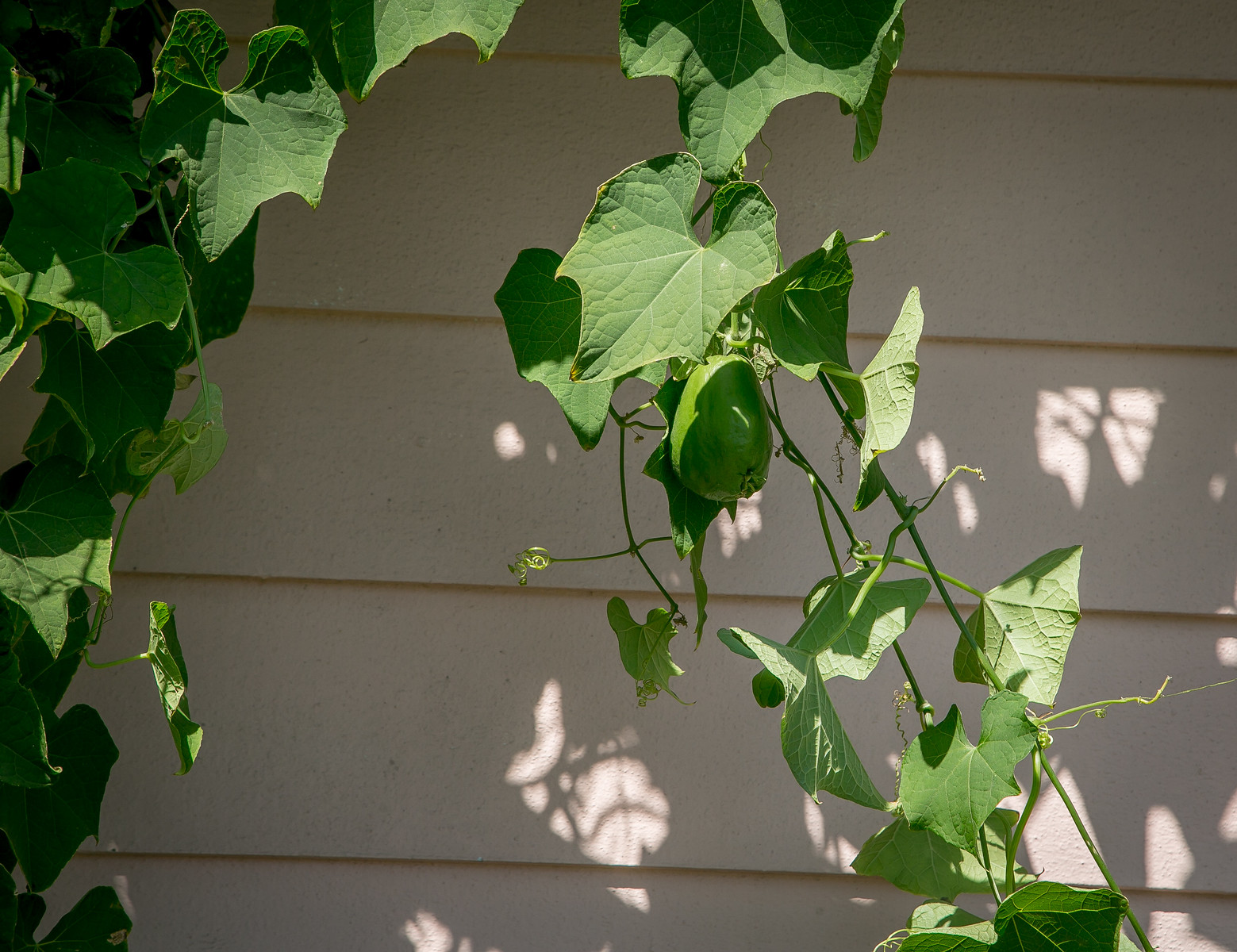
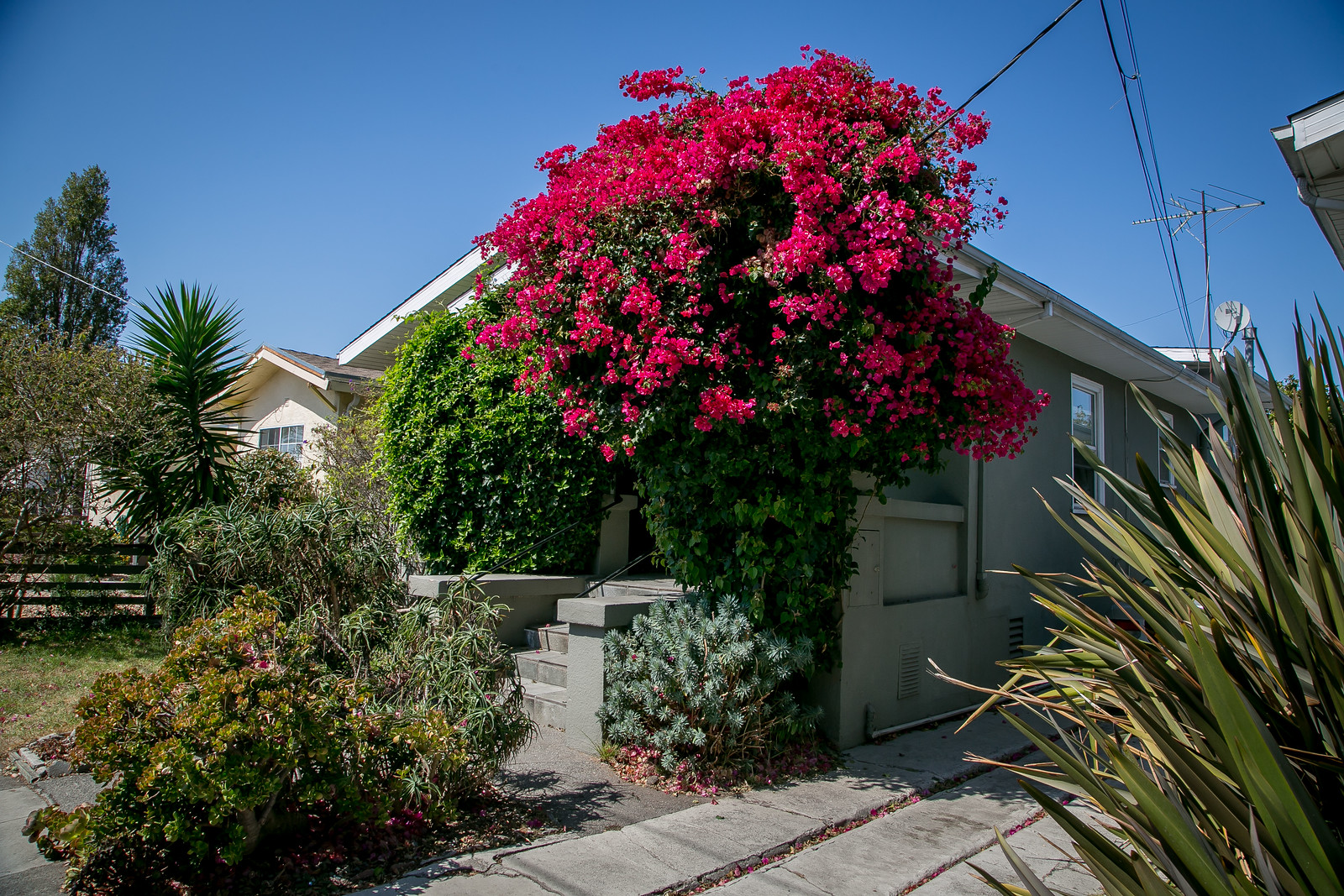
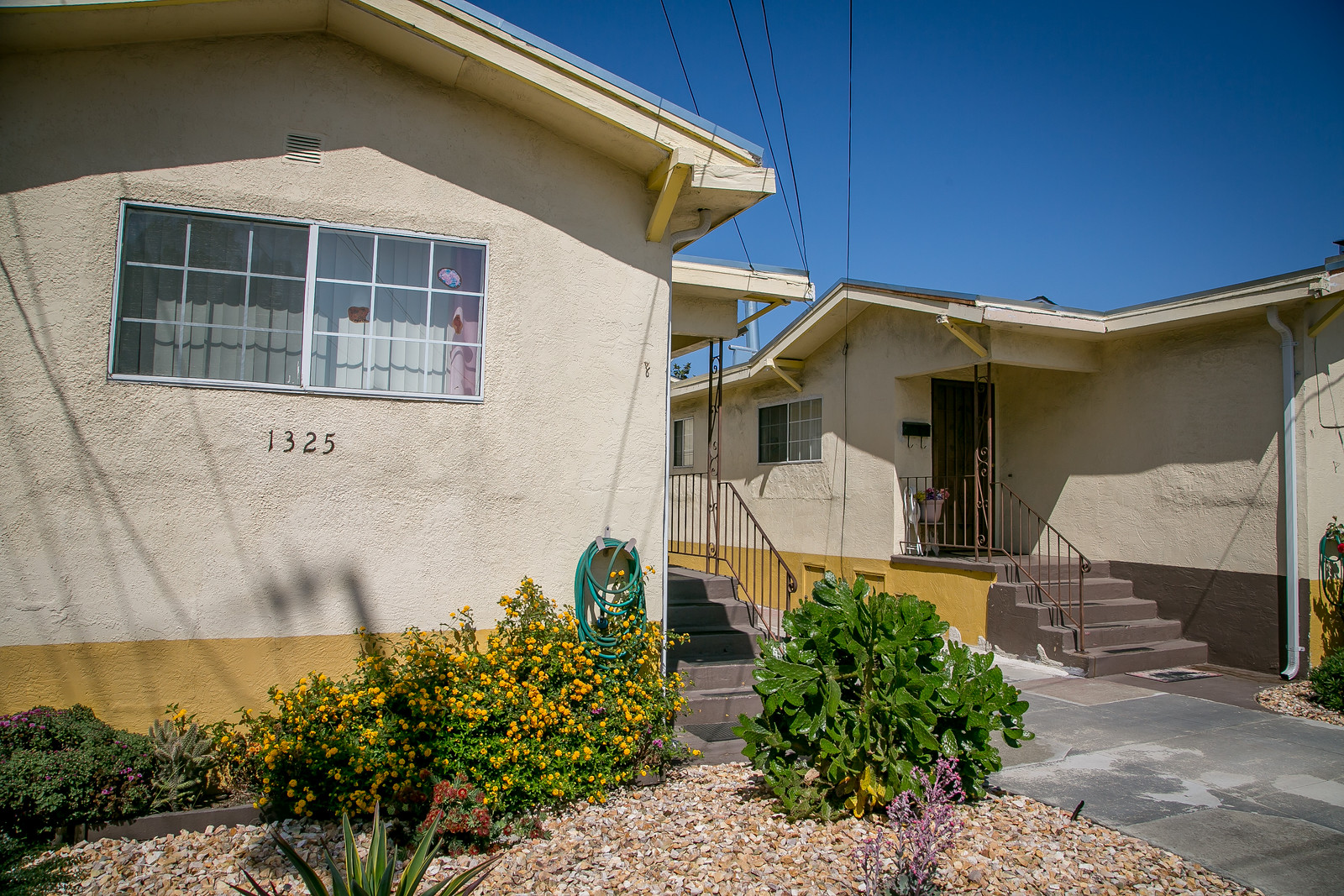
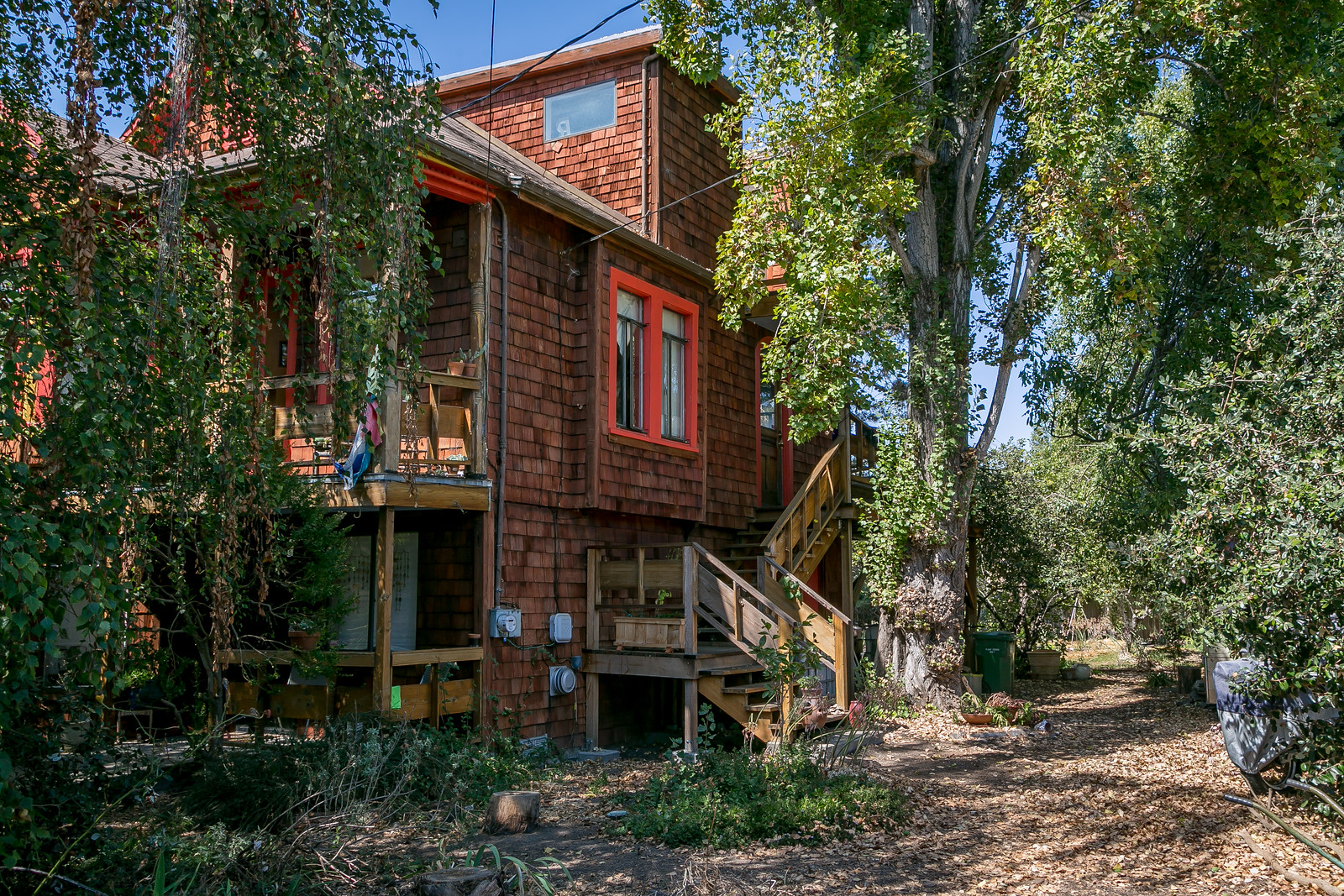
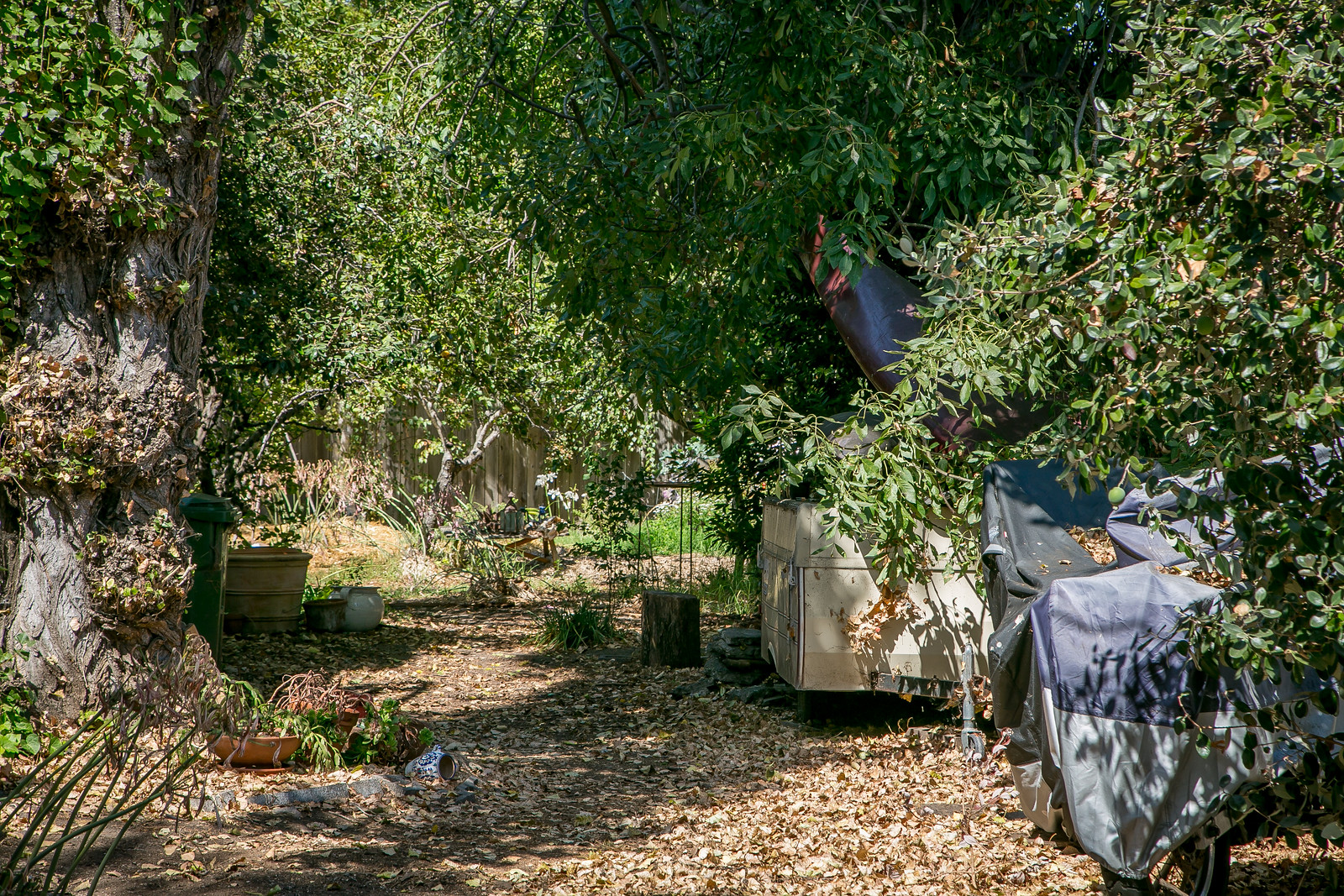


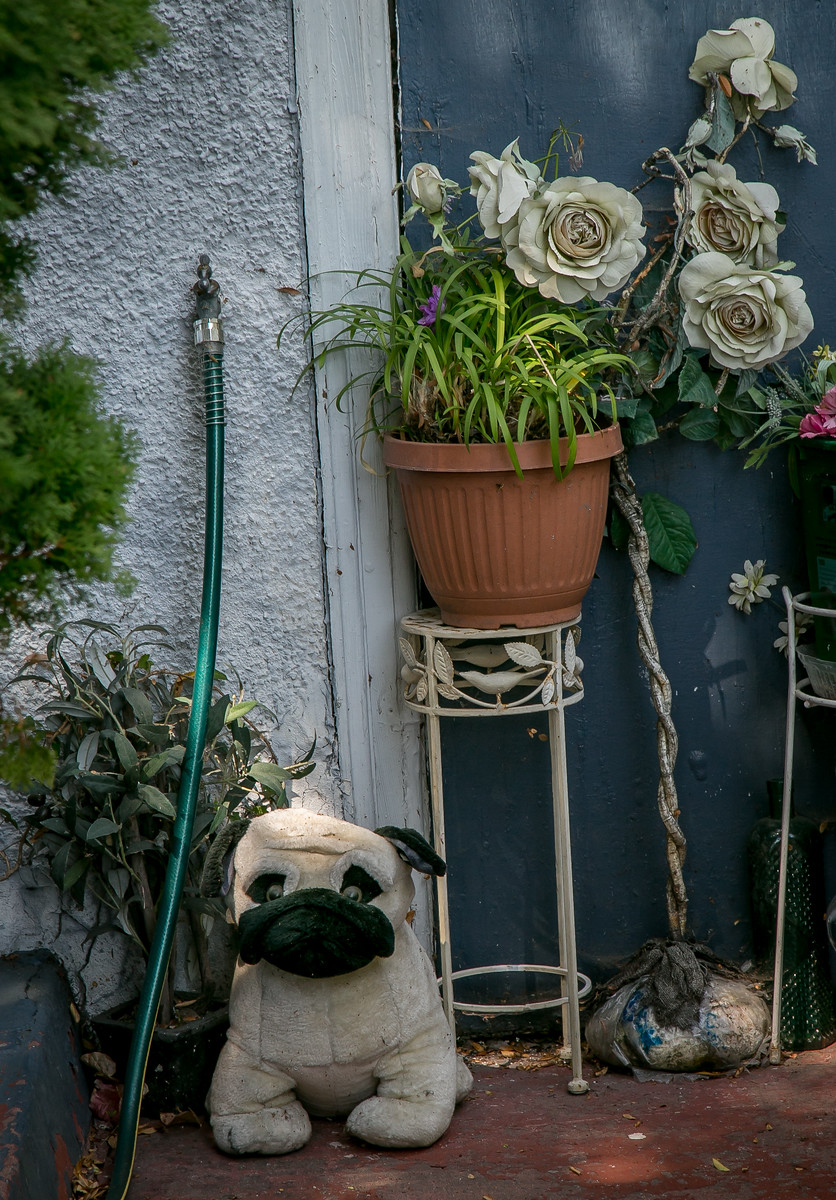
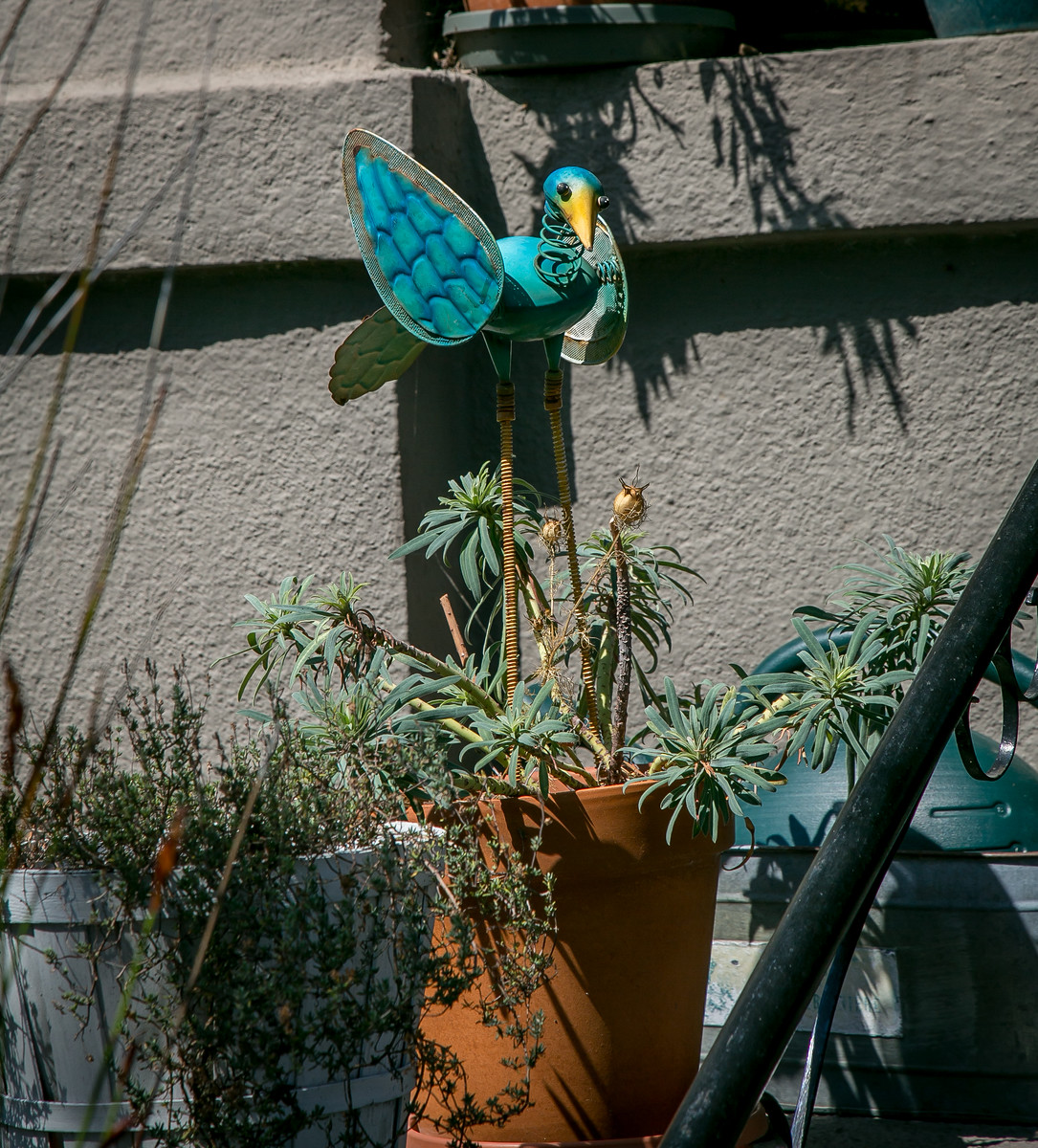
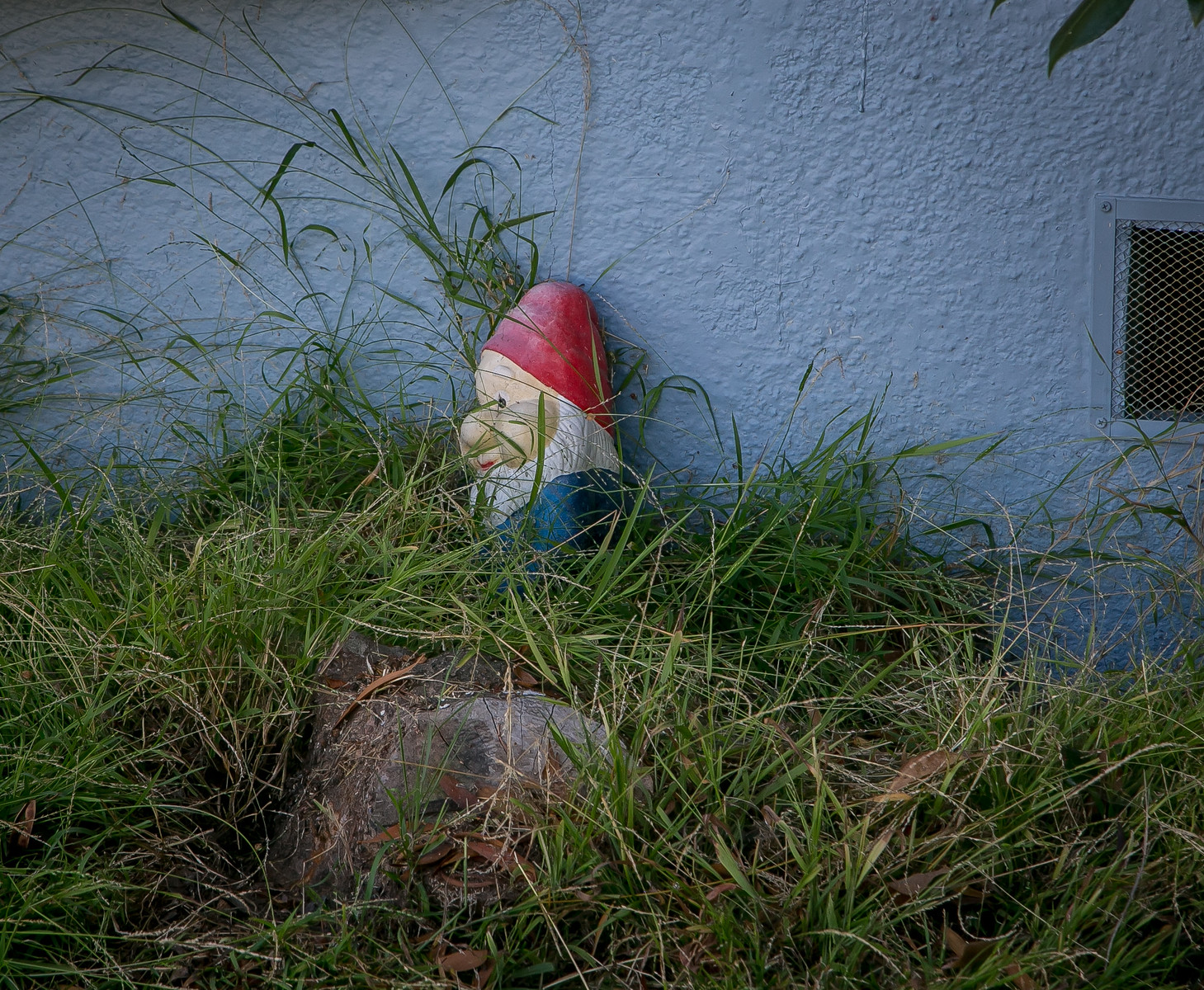
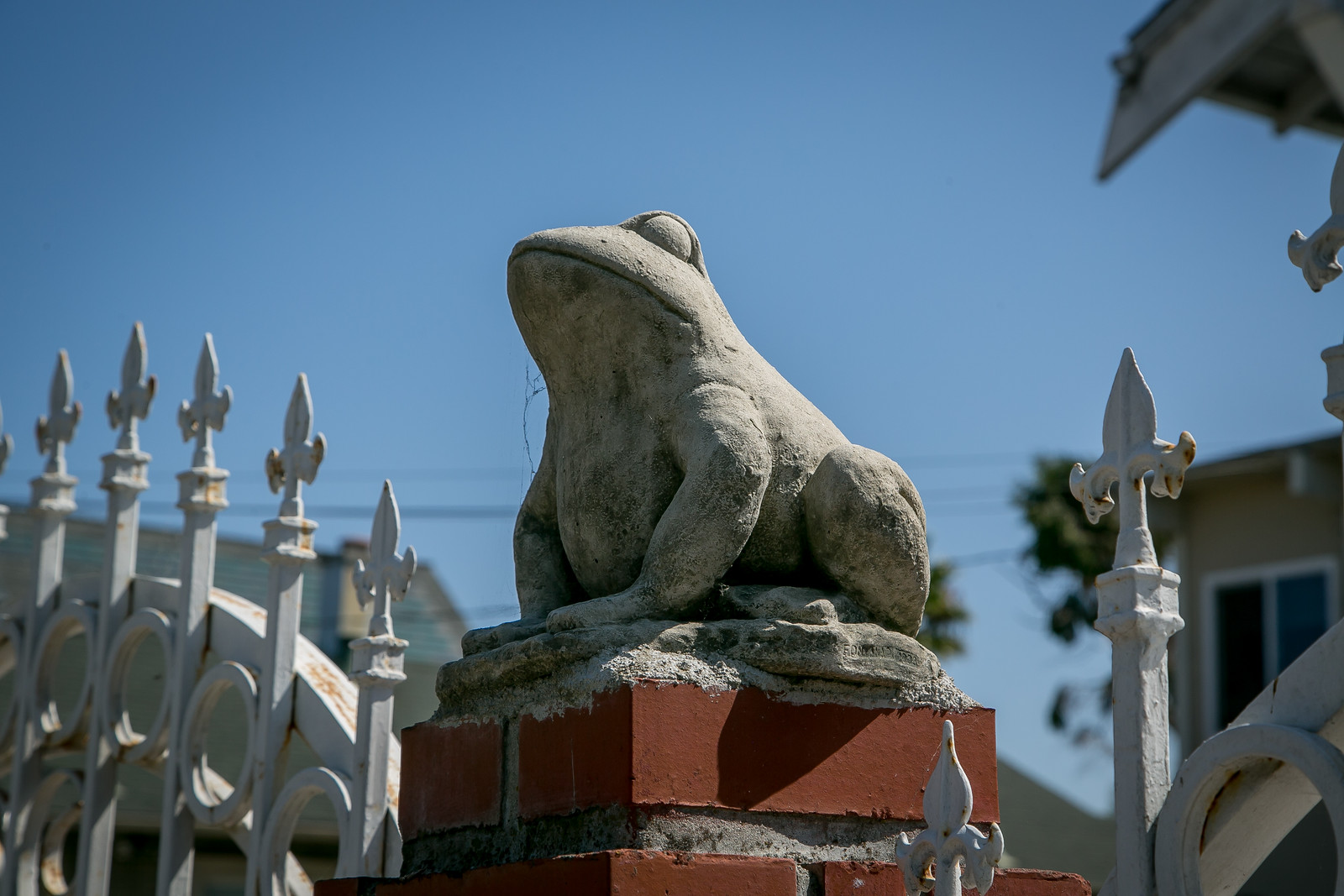
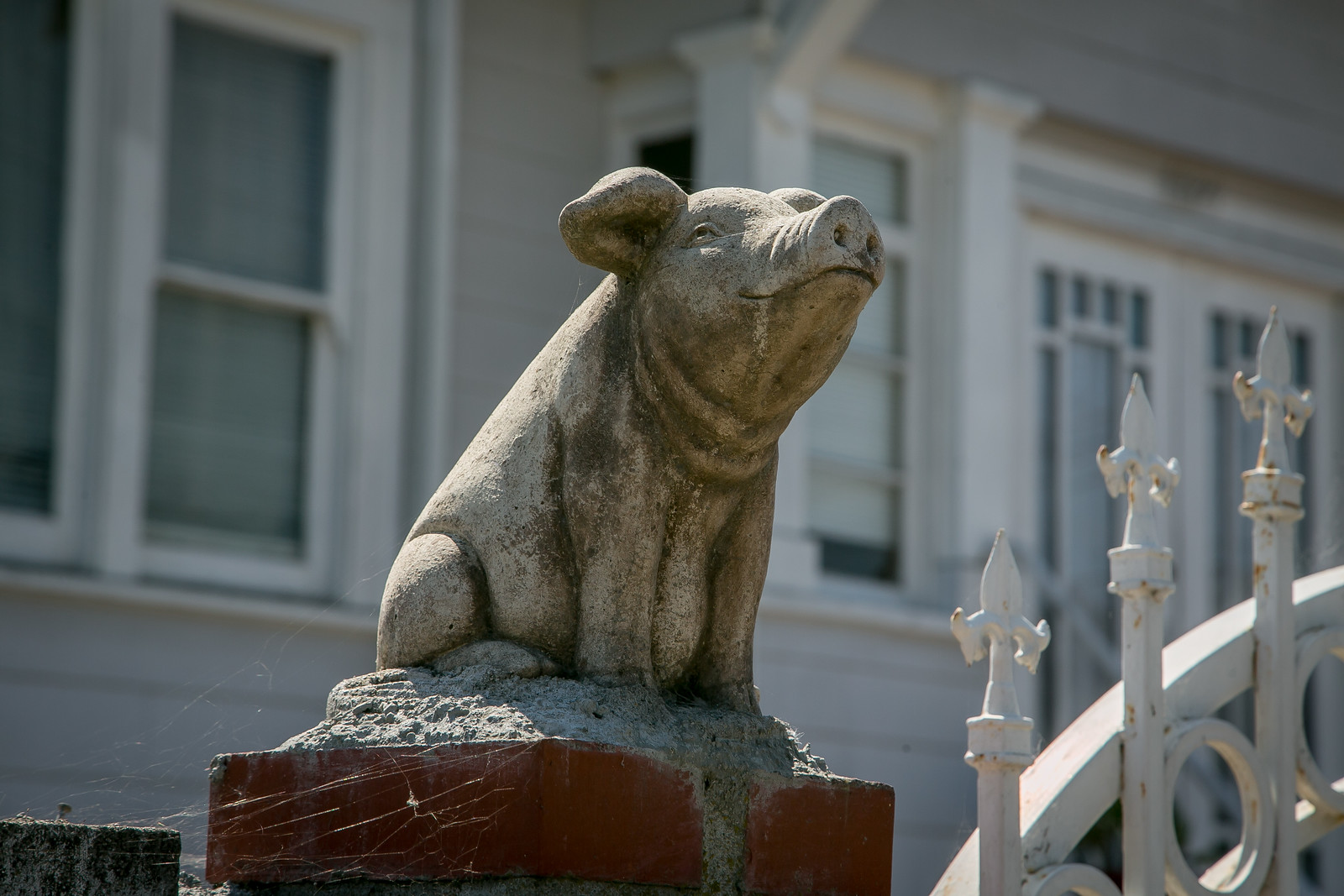
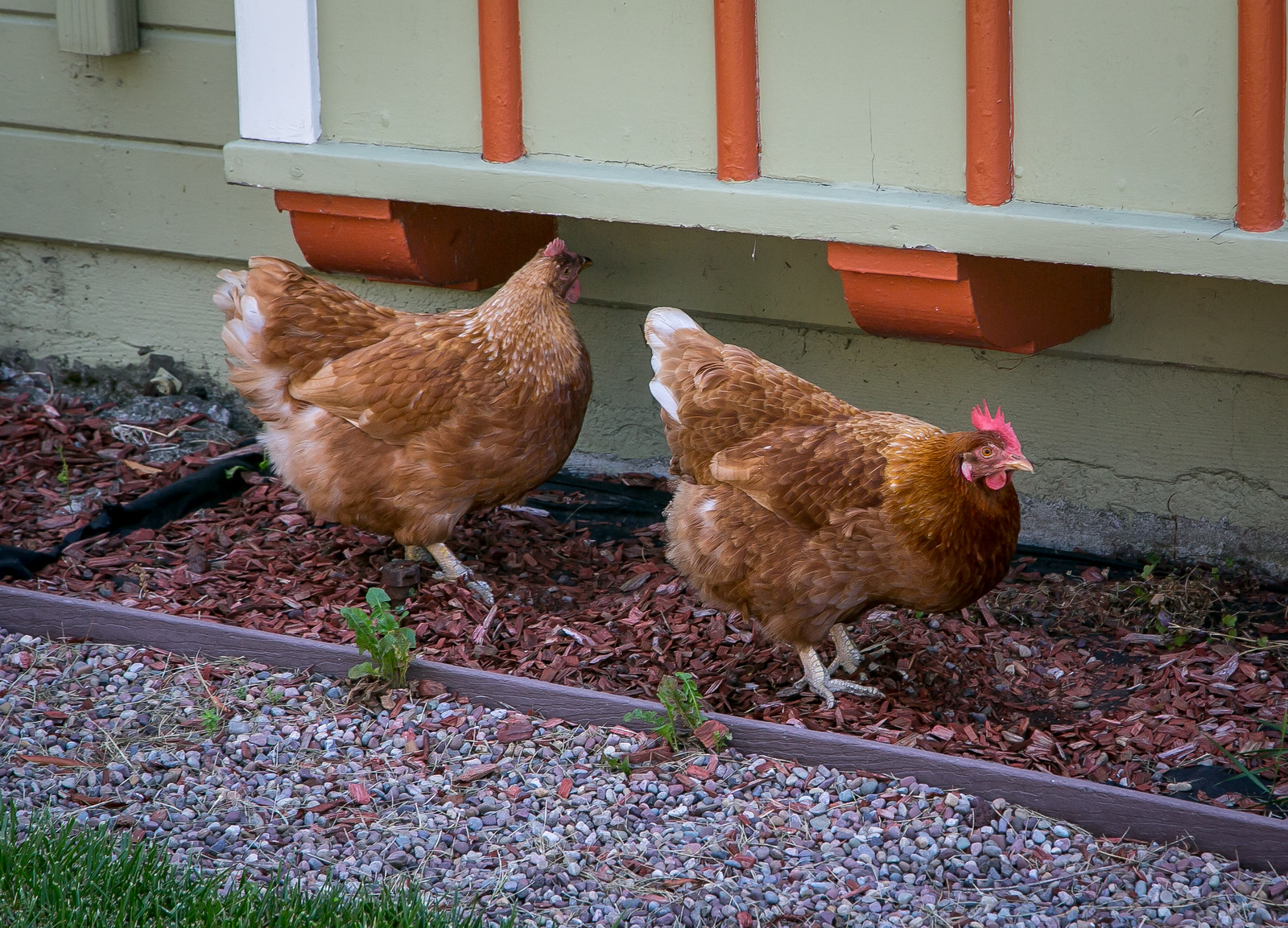


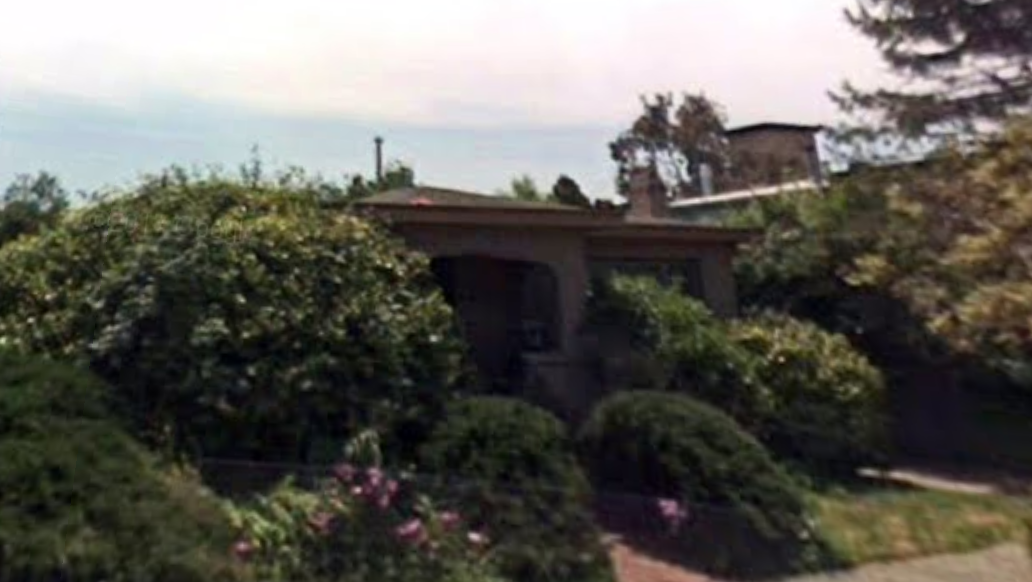
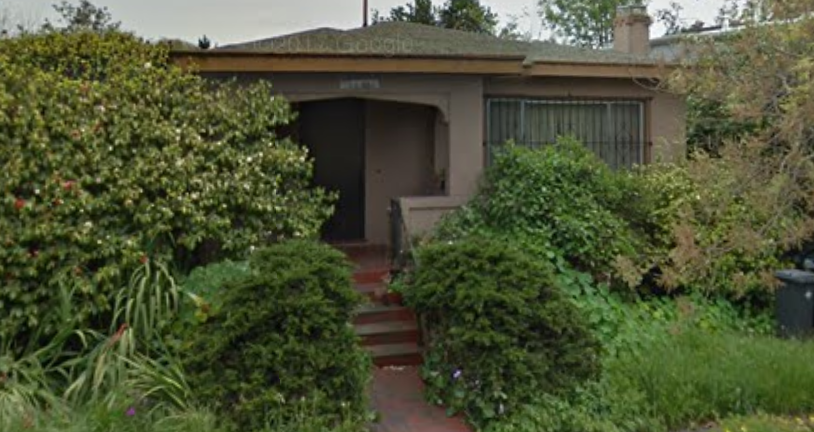

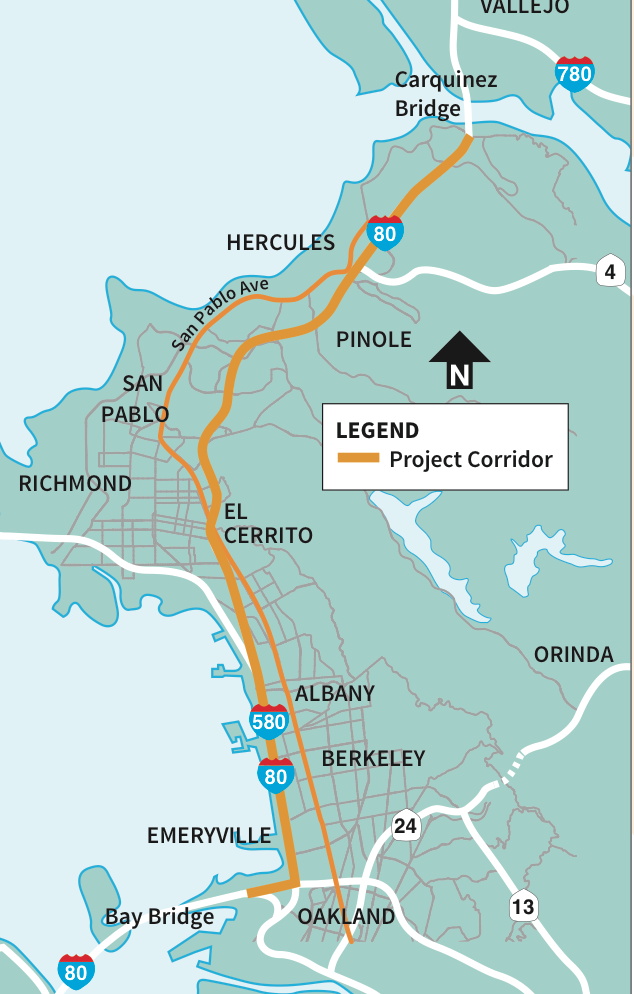
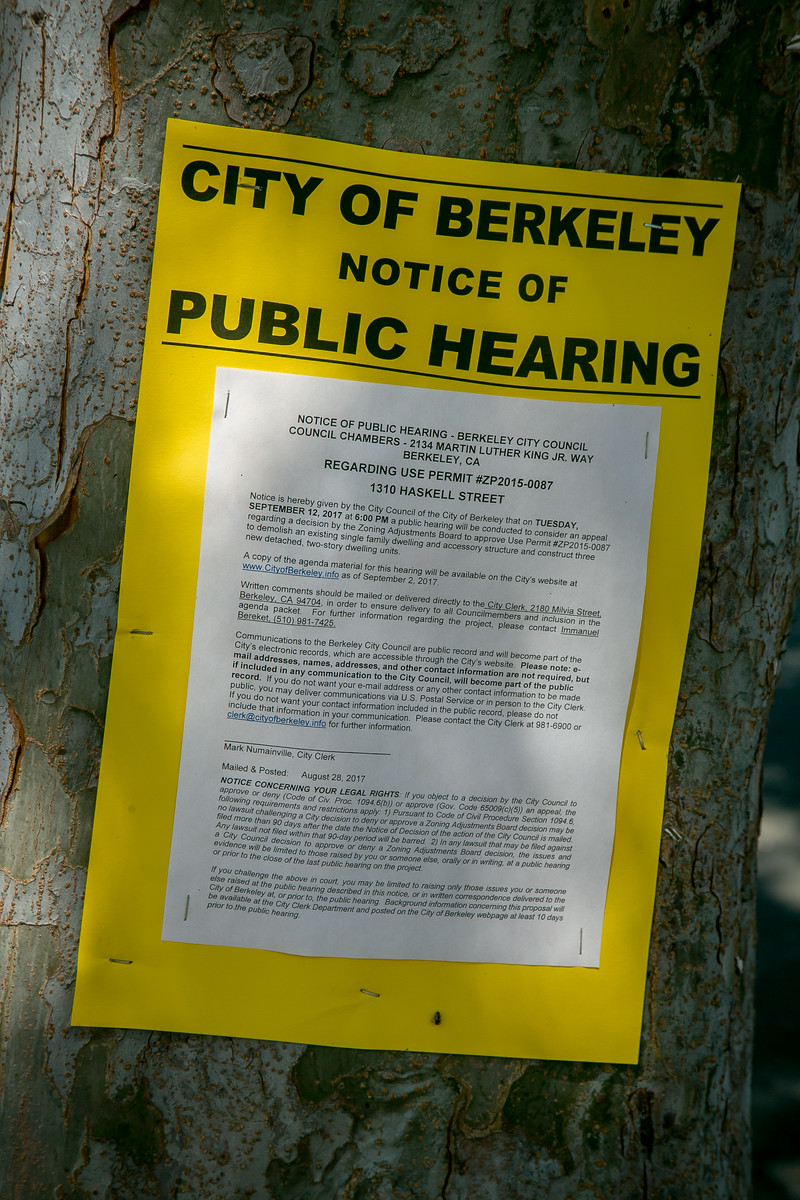
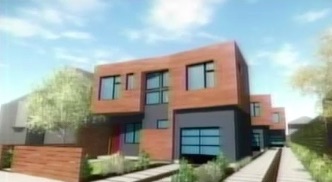
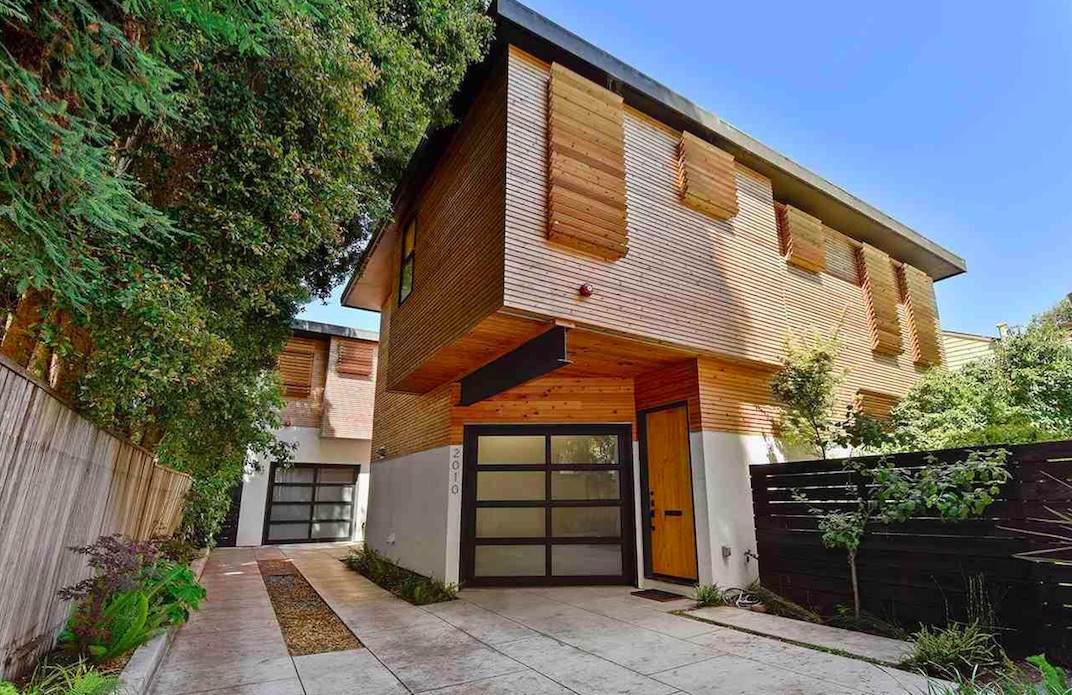
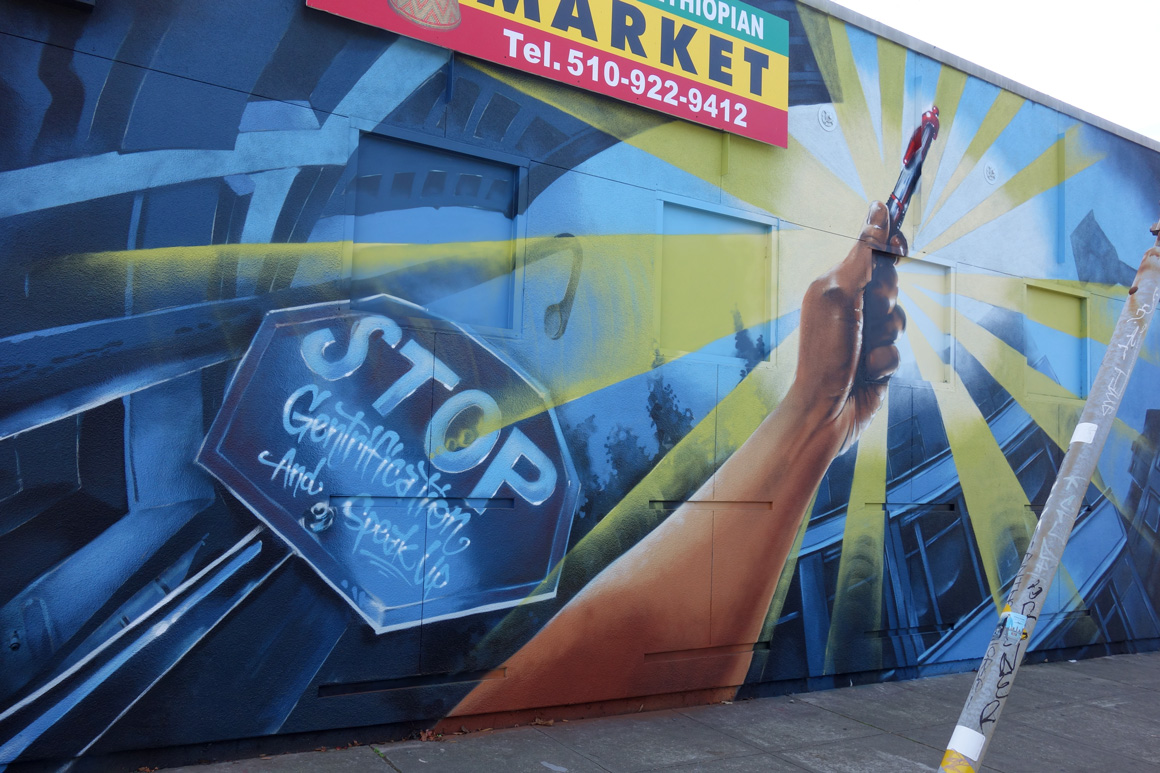

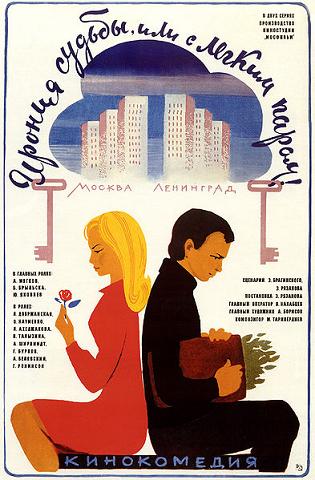


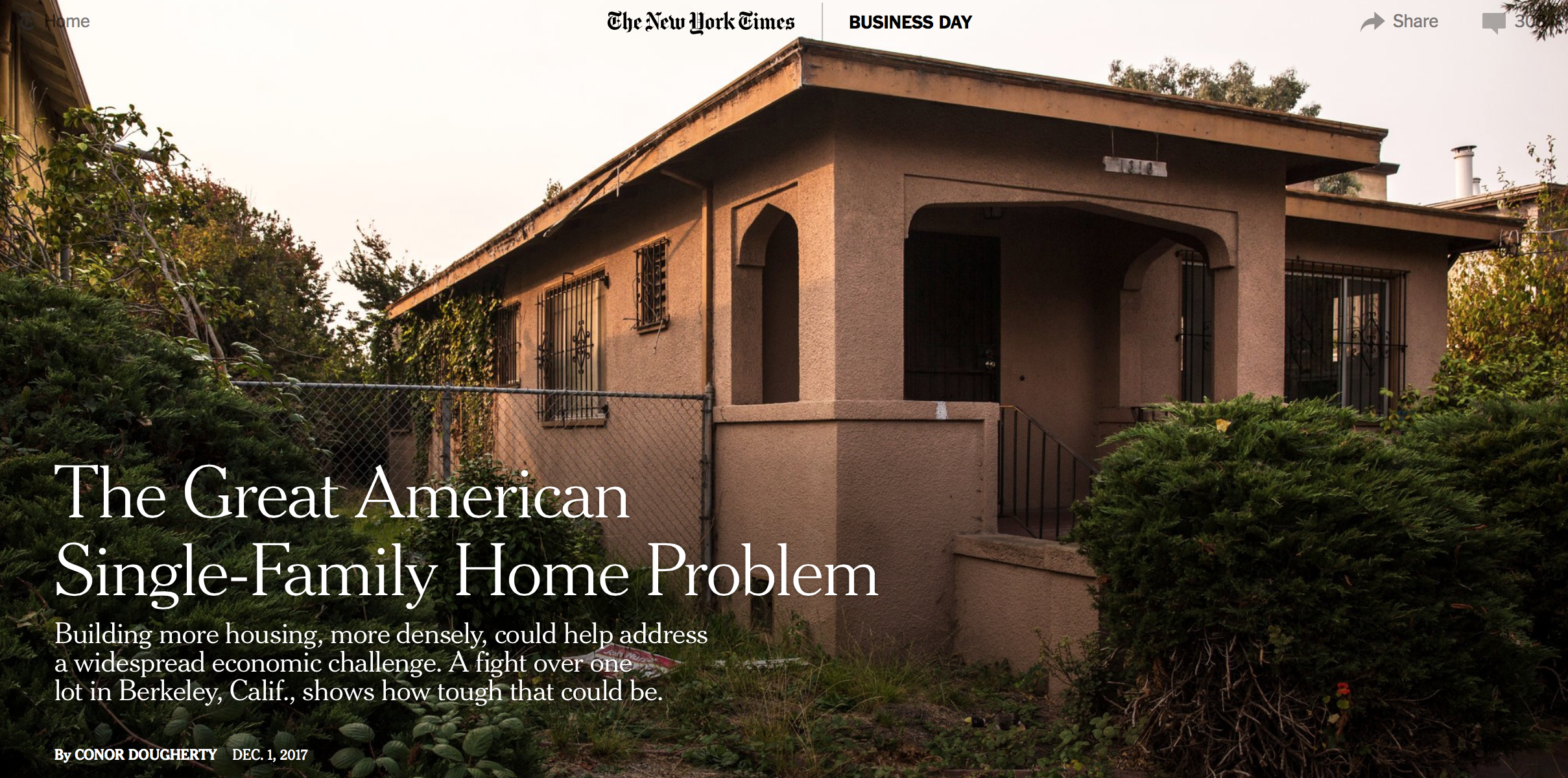
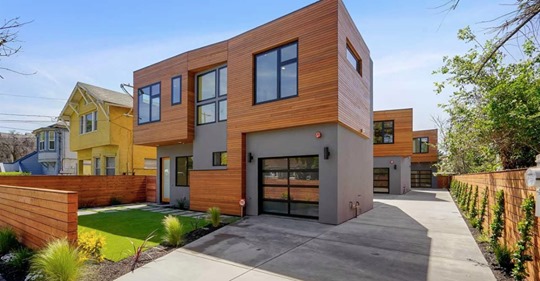
Love the photos. I bike daily down Haskell en route to City Sports Club on S. P.
If you ever want to do a story on Strawberry Creek Lodge on Addison near Acton, let me know. I live here.
When you get time, check out the 800 block of Page Street for a similar story
The mystery fruit is a chayote squash. The seed-end can be rooted like an avocado and will yield delicious crops on a nice vine (there in the motherland where it does not freeze).
Brilliant! Thanks so much.